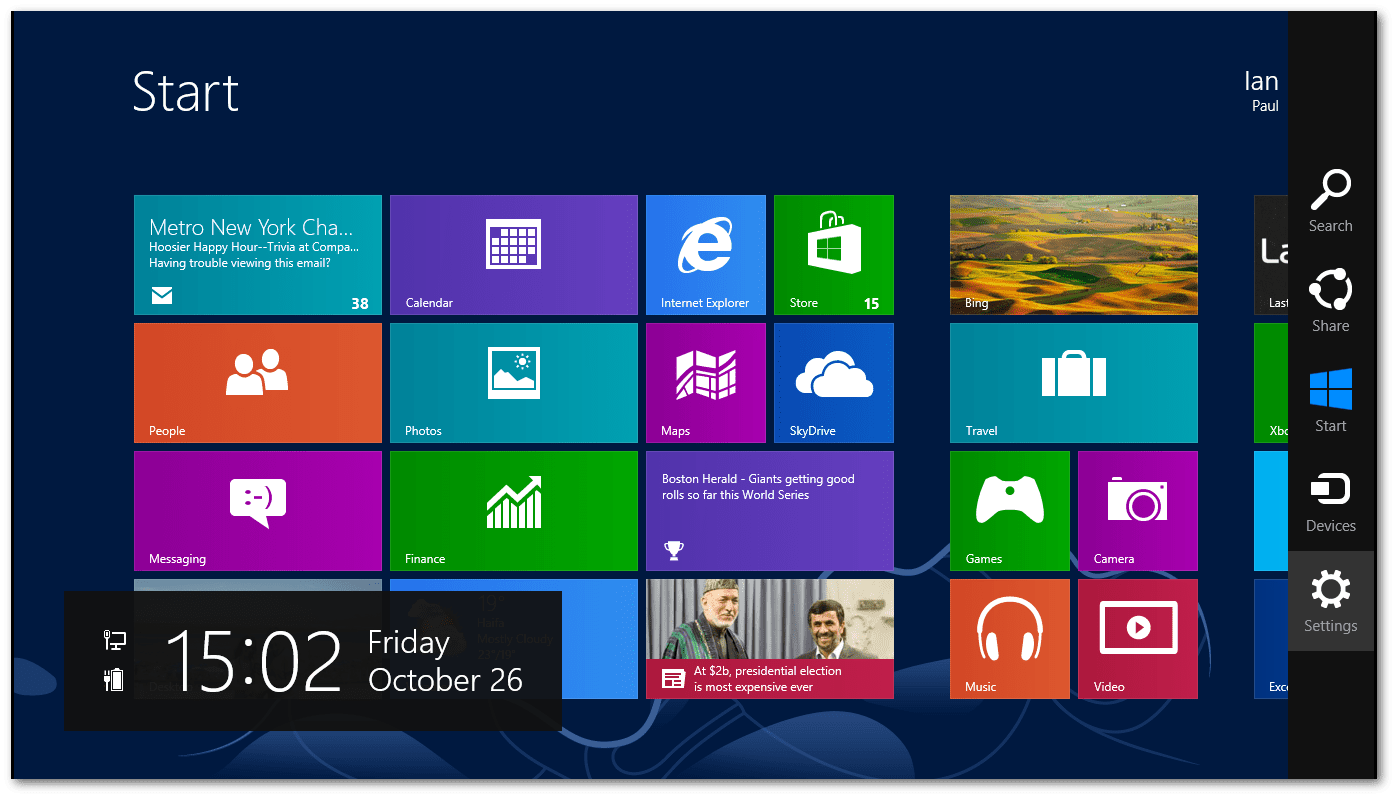Can Linux benefit from the obsoletion of Windows XP?

Soon Microsoft will end support for its aging Windows XP. I’m sure most readers are baffled, rightly so, by the idea that people would still choose to use it. Yet is second in number of users: According to Net Marketshare almost 30% of computers still run XP. The real number is likely even higher as it seems reasonable to expect many machines running XP don’t connect or connect as often the web as do machines running modern operating systems.
This presents what is perhaps a unique opportunity to push Linux into mass adoption. Moreover, there’re many incentives that promote governments as well as big corporations to try and get rid of Microsoft’s obsolete operating system.
Why do people refuse to abandon it? There’s not a clear answer to this and most possible answers come from surveys with rather low statistical significance. Let’s speculate regardless.
Cost: Upgrading is too expensive.
Most users, especially those still running XP, probably know of only three choices: Keep Windows XP, buy Windows 8, buy a new computer with Windows 8. If people feel comfortable with their current setup and they don’t feel like Windows 8 or a new computer offer enough extra stuff to spend so much money on it, is natural to expect them not to upgrade. In other words, for many of the people still running XP, the new versions of Windows are not worth the cost, moreover many of them may not be able to afford it even if they thought it was worth it.
The way Linux benefits from this situation is clear: Linux distributions offer a path to a supported operating system that doesn’t require a new computer or to pay for a costly license (obviously, modern linux distributions are probably too taxing for many XP machines out there, yet distributions aiming to lower requirements are not only possible, they exist). The biggest issue is most people probably isn’t aware of this alternative. Therefore is up to us as a community to try and raise awareness of it.
Habit: Is too much effort to learn something new.
Others may not be particularly concerned about the price, yet they may still refuse to upgrade to something newer (Linux, Windows, Mac OS X, or any other operating system) out of the fear of having to spend time learning how to use a computer again. Microsoft with its Windows 8 has actually done us a huge favor:
The learning curve from Windows XP to Windows 8 is steeper than the learning curve from Windows XP to most Linux distributions. Another inherent advantage Linux has is we can, in fact, make specific configurations targeted to XP users with very (relatively) little cost and effort. Obviously distributions such as Netrunner that ship with all the stuff a user may need are better positioned to become alternatives to XP versus distributions that require the user to find alternatives himself.
While knowing that both are likely reasons why some people don’t upgrade their operating systems, the following could prove more powerful as a mechanism to promote switching to Linux.
The dangers of XP
April will be the end of support for XP, therefore critical security updates will be no more. This fact poses a danger to its users, as they will be exposed to all kind of treats. This is unlikely to motivate regular users to switch, however is not them necessarily who need motivation: Financial Institutions, E-Mail providers, Governments and any company dealing with critical information or assets are put in a difficult situation if a significant amount of their users are exposed to virtual treats.
For example, banks offer protections against virtual fraud and are constantly fighting it not because they care about us, mind you, they do it because the more frauds the more they have to spend covering the robbed money.
Therefore, is in the best interest of many powerful institutions that current XP users switch to something more secure. While Microsoft’s newest operating system may come to mind, Windows 8 costs money and these institutions are not in the business of making Microsoft rich. Moreover, because of the issues mentioned in Habits, making them switch to Windows 8 is harder than it may otherwise appear.
If the costs of upgrading to another operating system will be to some extent absorbed by institutions that are put in a very stressful situation by XP users, it’s natural to assume they will try to go for the cheapest possible solution. Linux distributions being open source and very secure are a very optimal solution for them.
In fact, some governments are already mobilizing. The government of Munich (German here) will be giving some CDs containing Lubuntu for free. According to Business Korea government officials on South Korea as well as Korean companies are considering switching to Linux. The American and British governments are about to face an IT nightmare, since most of their systems run Windows XP. Although it may seem unlikely for them to switch to Linux, the White House recently completed the switch to open source (attention: the first link makes some claims about the Obama administration, regardless of politics, the switch started in 2001) and many other agencies use Linux. Many other government agencies around the world are in the process or already switched to it. To name a few: The French police and parliament made the switch, Iceland is switching and will basically switch all its public institutions and Russia is switching all of its infrastructure (original document here, ironically enough is a .doc file).
Conclusions
Perhaps the community would be wise to spend more resources focusing on relatively old hardware, unlike the monopoly Microsoft holds on the distribution of pre-installed operating systems, people looking to replace their old but somewhat serviceable (according to them) operating system are more likely to switch. More importantly, distributions would be smart to pander to the needs and knowledge of current Windows XP users, as well as the needs of government agencies and companies that will need to update their internal infrastructure for security reasons, or that will try to upgrade their users to securer systems.
Many companies may choose to simply drop support for Windows XP. This doesn’t mean they aren’t creating a powerful incentive to push users to switch: in such a scenario people need to switch to something else if they want to keep users the services. Regardless of the strategy companies and governments may pick, they will create an incentive for switching and the Linux community should capitalize it. The answer to the headline then, pace Betteridge’s law, is yes.




i think the general linux user vastly overestimates the intellegience of a 2014 xp user. I work in retail/services for geek squad, the average xp user that comes in there barely even know how to use xp, They all use old vesions of internet explorer and think its deleted if the shortcut is gone from the desktop. I think its people like this that make up that 30%, theres no hope for me, I was stunned when i found out how dumb some of these people are. Unless someone did it for them they would never be able to convert to linux themselves. I personally cant wait for the next netrunner based on kubuntu 1404, I dont think its netrunner’s aim to look like windows but it just kind of happens because they just go for a modern classic style that just happens to resemble windows. As opposed to Zorin which tries to clone windows in every way it can pretty much. Lubuntu is amazing though too, it is aways quick and stable. esp if its a real old computer. In the few cases where i did convert people to linux it was usually lubuntu that i went with usually because the computers were so weak (original pentium series, 250-500mb ram etc) Netrunner is my preferred distro though. I cant wait for the lts.
I think is rather incorrect to qualify XP users as dumb, they may not be tech savvy. That doesn’t render them dumb.
I didn’t mean to say distributions should only try to pander to them, I just meant to say that some should do it. As you said, It’s not Netrunner’s aim to look like Windows, Netrunner’s aim is to be the bet operating system. Moreover its developers deeply respect the intelligence of their users and trust that giving them many choices will be beneficial for them.
Netrunner is one of the best distributions out there (and my personal choice), but I think some other distributions could focus on XP users, calling them dumb instead of trying to make things easier for them, is not the correct strategy.
Well geek squad, Ubuntu is easier than XP for a newbie. I have used Ubuntu 12.04 with folks that hardly touched a computer beside a XP computer and after 3 minutes of instruction were running Ubuntu. It took 30 minutes to get them started in XP and then forgot most of it. The dash in Ubuntu will find what you forget and that is what they loved!